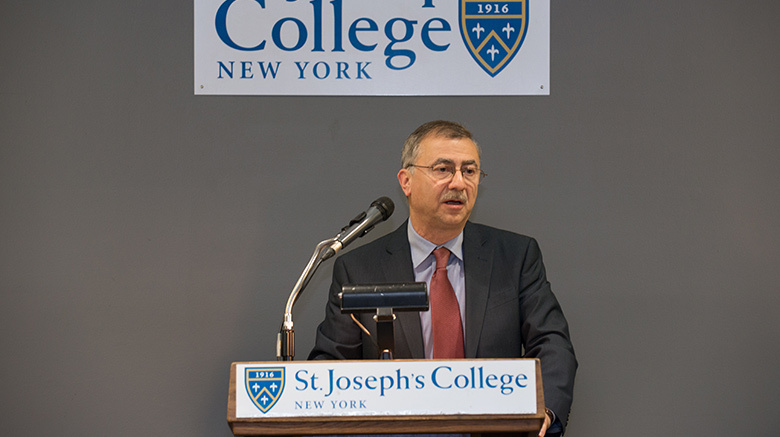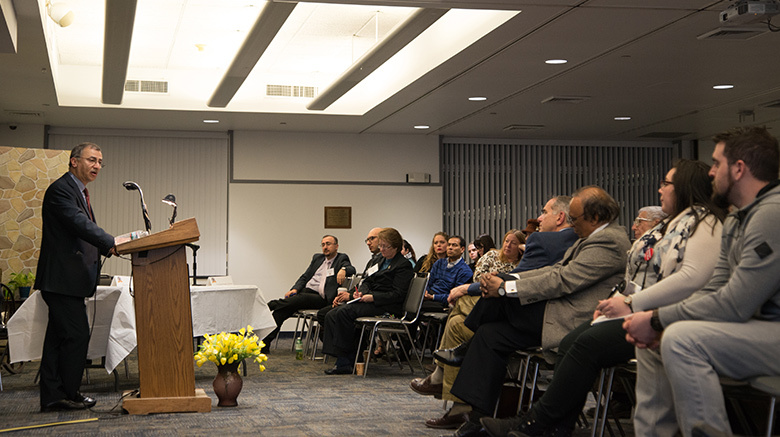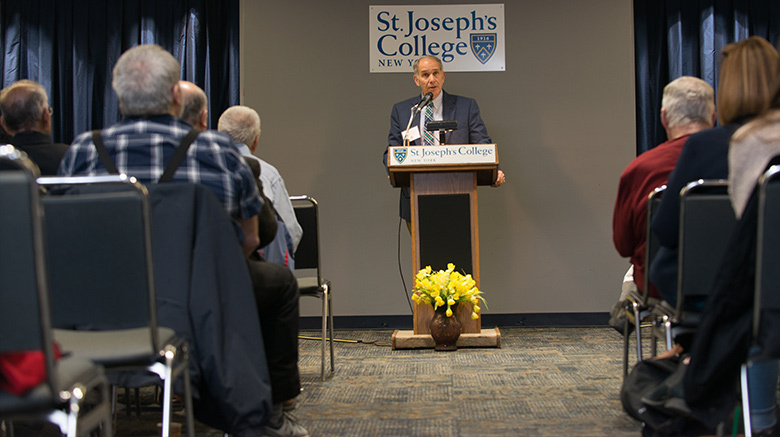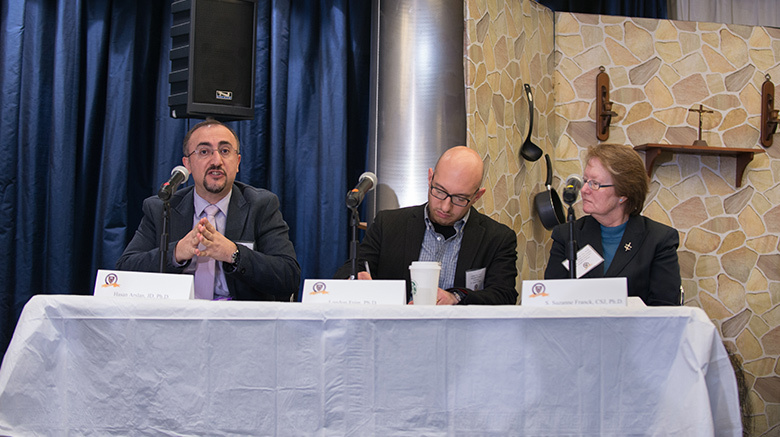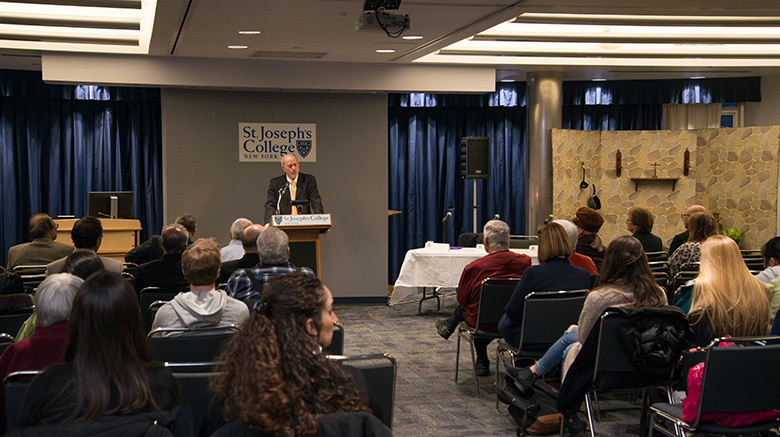What does Mehdi Aminrazavi, Ph.D., make of President Trump’s order restricting immigration from six Muslim-majority countries?
“It is utterly stupid.”
Trump is emulating history’s worst leaders by creating fear and “otherness,” Dr. Aminrazavi, a professor of classics, philosophy and religion at the University of Mary Washington, said during his March 16 discussion with audience members at St. Joseph’s College’s ninth annual Khatib Lecture, “Violence and Peace in Islam.”
“The most tragic aspect of what Trump is doing is to create stereotypes in order to make political gains, to create this ‘otherness,'” said Aminrazavi, SJC’s 2017 Khatib Chair in Comparative Religion. “Hitler did the same thing. Stalin did the same thing. Creating fear is politically beneficial.”
‘What the Media Presents’
If there were to make a movie about 99.99% of Muslims in the world, it’d be such a boring movie, nobody would want to watch it.
A specialist in the areas of eastern religions, Islam and the Middle East, Aminrazavi detailed the history of Islam and its current state. Over the course of the evening, he raised topical issues facing the faith in the contemporary world, and what Americans interpret through the media.
“America goes by what the media presents. Unfortunately what sells on media is quite sensationalized. If they were to make a movie about 99.99% of Muslims in the world, it’d be such a boring movie, nobody would want to watch it,” Aminrazavi said. “But our representatives (on film) are these scary-looking people with medieval features that look like they crawled out of some cave, and are ready to create mayhem.
“We need to take cameras inside Muslim kitchens, that’s where things are happening. Talk to ordinary Muslims, see how they live.”
Khatib Features A Panel of Religious Academics
Each spring, through the generosity of Dr. Reza Khatib and Mrs. Georgianna Clifford Khatib ’52, St. Joseph’s hosts a noted scholar who lectures, leads faculty discussions and teaches a course to students from both campuses. The Khatib Chair’s purpose is to promote interfaith dialogue, with the study of Islam being an integral part of the initiative.
This year, Dr. Aminrazavi’s lecture was supplemented with a panel of professors who each offered a perspective from a different ideology. Pace University’s Hasan Arslan, J.D., Ph.D., offered a Muslim perspective; SJC associate professor of philosophy Landon Frim, Ph.D., presented a Jewish view; and religious studies associate professor S. Suzanne Franck, C.S.J., J.D., a Catholic one.
“We’re so caught up and focused sometimes on what our differences are, and our bordered world, or our idea that we’re right in our actions, that we don’t allow ourselves to step back and see that we’re part of the same whole,” S. Suzanne said.
“We hope that our listening, learning and understanding can help us break through the barriers of fear and suspicion that separate us.
The message was reiterated by another member of St. Joseph’s College, Thomas Petriano, Ph.D., who opened the evening with Senior Vice President and Vice President for Academic Affairs Christopher Frost, Ph.D. Both emphasized the importance of The Khatib Chair, and the underlying message of interfaith dialogue that bridges communities and religions, now more than ever.
Dr. Petriano opened the event with a quote from Hans Küng, a scholar of world religions:
“‘No peace among the nations without peace among the religions. No peace among the religions without dialogue between the religions. No dialogue between the religions without investigation of the foundation of the religions,'” Petriano said, quoting Küng.
“It’s that wish for peace that brings us all together in the spirit of dialogue,” Petriano said. “We hope that we can all become better listeners. And that our listening, learning and understanding can help us break through the barriers of fear and suspicion that separate us.”

